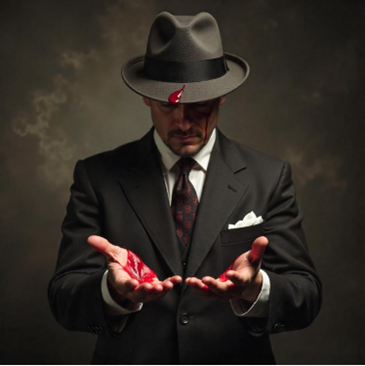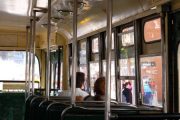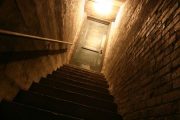William “Willie” Morretti was the shadow behind the Godfather’s throne. In the bloody underworld of 1950s Chicago, where he grew up on the ‘mean streets,’ they spoke his name in low whispers, if they said it at all. He was The Blade. With a Fedora pulled low over his eyes, everyone knew the Blade struck fast, without remorse, but only on the sinful.
He had slit throats in stairwells, silenced traitors in the alleys behind bakeries, and buried bodies where skyscrapers now stood. Blood on his hands was a satisfying lubricant.
But orphaned Willie, raised in multiple homes, loved two things in this world: animals—innocent, loyal, voiceless—and little kids. The kind who hadn’t been poisoned yet by power or greed. He’d watch the neighborhood children toss marbles or chase paper kites. Their dogs would approach him, tongues wagging, begging to be petted or hugged, and when he did, his heart would soften like warm wax.
As he was taking his usual night route from Cicero back to Bridgeport, construction blocked the road. Muttering under his breath, he turned east, down a street he hadn’t seen in years, past rust-bitten fences and broken stoops. There.
A run-down two-story house. Flames licked out of the roof into the darkness like the tongues of a dragon.
Willie screeched to a stop and jumped out. No crowd yet, no sirens—just the crackle of fire and an old woman’s faint wail. He didn’t think. He didn’t need to think.
He slammed his shoulder into the front door. It cracked partially, and smoke rushed past like a curse. Another jolt—open. Inside, the living room looked like a junkie’s haven—needles, bottles, filth. A woman, maybe thirty, lay slumped out on the couch. He yanked her off the cushions and dragged her to the yard. She stirred, coughed.
“The two old ladies… back room… wheelchairs…” she squeaked before passing out again.
Willie’s lungs, already choked with soot, barreled back in, keeping low. The rear bedroom—smoke-drenched and gathering heat—held two elderly women, clutching each other and crying out in terror. Their wheelchairs were askew.
“I got you,” Willie growled. He lifted them, one by one, tossing aside the clutter like it weighed nothing. He wheeled them out the front just as the flame bit through the parlor ceiling.
Then, one of the wheel-chaired women screamed, “Her children! Upstairs bedroom—save them!”
Willie turned. Fire was coming out of the end windows. He hoped the children weren’t there. His chest heaved. His instincts—so honed for killing—screamed to stay away. Instead, he jerked the long coat from one of the old ladies, doused it in a nearby muddy water puddle, threw it over his head and shoulders, and charged into hell.
The stairs groaned. Every step was a dare from the devil.
Through the smoke, he heard them. Tiny cries. What was the other sound?
At the far end of the hall, past flames licking through the hall ceiling, the children sobbed.





